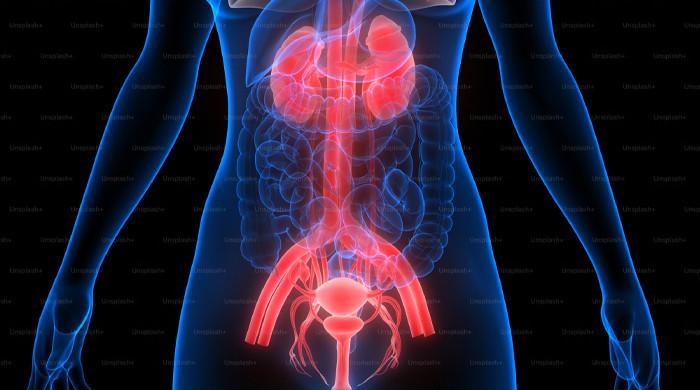Intermittent Fasting 101 Benefits: For Men vs Women
Intermittent fasting has numerous health benefits, including weight loss, better digestion and improved heart health
January 09, 2024

Intermittent fasting is an eating pattern where you don’t eat for a certain period and then eat during a specific set of hours. This can be done in a daily routine or even by fasting on alternate days.
Intermittent fasting has become popular due to its various benefits, such as prevention of heart diseases and weight loss.
Intermittent Fasting for Men:
There are several differences in intermittent fasting results for men vs women. E.g. in men, their metabolism increases by almost 14% during periods of fasting.
This comes in tandem with the fact that they also improve testosterone utilization, as well as growth hormone production.
Intermittent Fasting for Women:
For women, the result of intermittent fasting mainly puts the body in a state of fuel preservation mode, and according to many, provides fewer benefits.
This leads to a growing need to utilize a more modified approach.
Inversely it may cause changes in the female menstrual cycle, and may even affect the hypothalamus, during longer periods of fasting.
To better utilize the benefits of fasting, women should fast for shorter periods and have fewer fasting days in total.
Intermittent Fasting Benefits:
Here are 10 benefits of intermittent fasting backed by research;
1. Weight Loss Aid:
One benefit of intermittent fasting that most people want to avail of is weight loss. Intermittent fasting can lead to weight loss mainly by decreasing calorie intake, which happens due to consuming fewer meals.
Other ways intermittent fasting can help you lose weight is by lowering insulin levels and increasing the levels of norepinephrine, commonly known as noradrenaline.
By doing this, the body goes into a state of ketosis, and the subsequent fasting leads to a healthier metabolism as well as the breakdown of fats.
All in all, intermittent fasting is one of the most efficient ways to lose weight, backed by science.
2. Improved Insulin Metabolism:
Insulin is made by the pancreas, in response to increased blood sugar levels, and helps in bringing it down. In type 2 diabetes, patients’ cells can lose sensitivity to insulin, and abnormal blood sugar levels are noted.
Overall, intermittent fasting can help regulate blood sugar levels by reducing insulin resistance and by simply lowering calorie intake.
3. Prevents Chronic Inflammation:
Studies suggest that intermittent fasting can reduce inflammation in the body. For those unversed, inflammation is a natural defense mechanism of the body that allows white blood cells to be deployed to the injured site, for germ control.
But in cases when it goes array it leads to chronic inflammation which is the cause of many chronic diseases, including rheumatoid arthritis, high blood pressure heart disease, and inflammatory bowel disease.
4. Improves Cellular Health:
Intermittent fasting triggers cells to initiate repair processes, mainly autophagy. For those unversed, autophagy kills abnormal cells and recycles cellular materials in a highly efficient and programmed manner.
This can prevent diseases like cancer, which is a disease in which abnormal cells multiply unchecked.
One more benefit to cellular health is increased resistance to oxidative stress, which is when free radicals form in the body as a result of chemical reactions and bombard cellular organelles.
If this kind of damage occurs to important molecules like DNA, it can lead to several diseases including cancers and tumors.
5. Improves Heart Health:
When it comes to cardiovascular health, intermittent fasting can be a game changer. Intermittent fasting can improve various conditions that can become causes of heart disease.
These include abnormalities in blood sugar levels, blood pressure, and levels of high levels of LDL (bad cholesterol).
6. Prevents Neurodegenerative Diseases like Alzheimer’s:
Oxidative stress, high blood sugar, and inflammation can all lead to brain damage. By regulating all these factors, intermittent fasting benefits your brain’s health.
This leads to protection against neurodegenerative diseases like Alzheimer’s disease, Parkinson’s disease, and Huntington’s disease.
7. Prevents Cancer:
While research in humans has led to inconclusive findings, intermittent fasting is thought to reduce the risk of cancer because it improves many health factors that are proven to be causes of cancer.
Overall, a reduction in inflammation, oxidative stress, and improvement in cellular health is known to lower the odds of cancer development.
8. Longevity:
Intermittent fasting has been found to improve the gut microbiome, which is the population of bacteria in your intestines.
A diverse population of good bacteria is considered important in maintaining overall health.
Intermittent fasting promotes the Christensenella species and is linked to longevity.
Note: Several researches have proven that intermittent fasting can delay disease, and improve metabolism.
9. Improved Digestion:
Intermittent fasting gives the digestive system a break, allowing it to rest and empty properly. This prevents the overgrowth of bacteria in the small intestine, where they aren’t supposed to be.
Proper emptying of the small intestine prevents digestive disorders like SIBO (small intestinal bacterial overgrowth), and IBS (irritable bowel syndrome).
10. Easy To Follow:
Intermittent fasting is a relatively simpler way of managing health. It avoids the over-complicated approach that many diets take and has numerous benefits for health.
All in all, for those looking for a more lifestyle-oriented shift, that can be maintained long-term, intermittent fasting is the best, noninvasive option available for weight loss.









